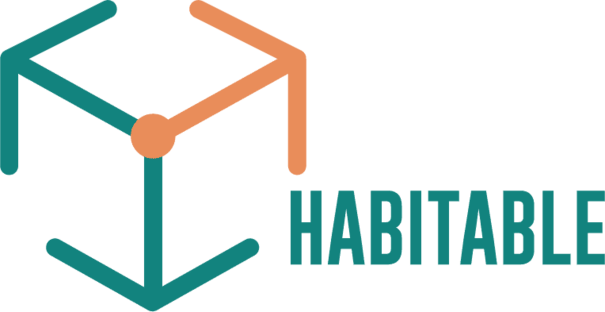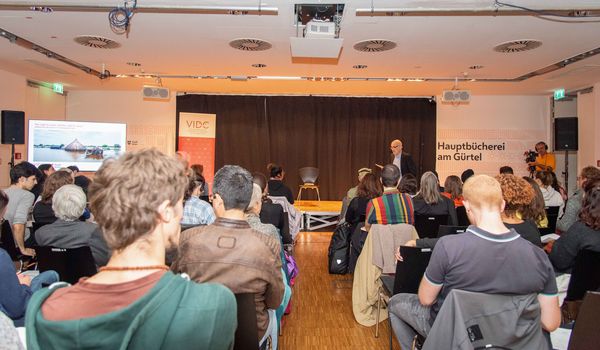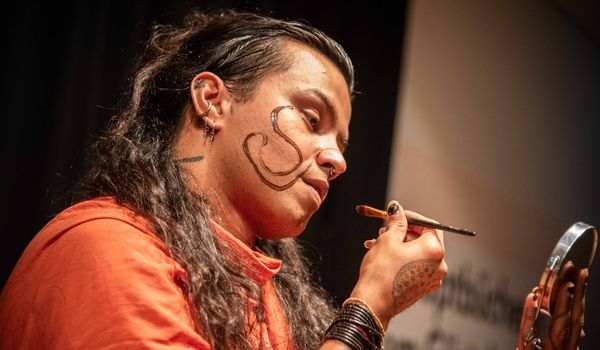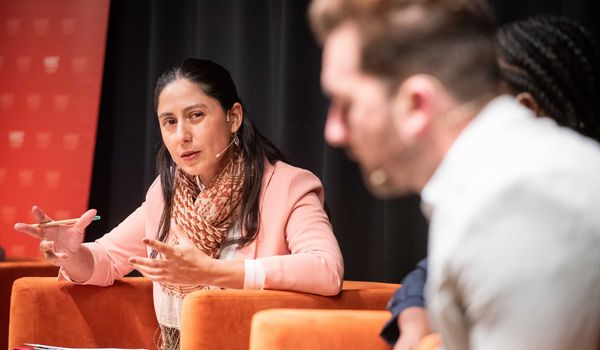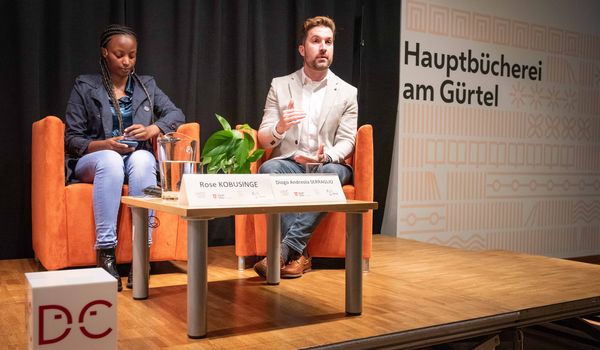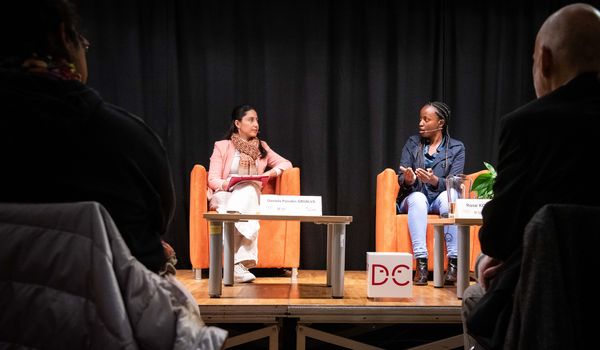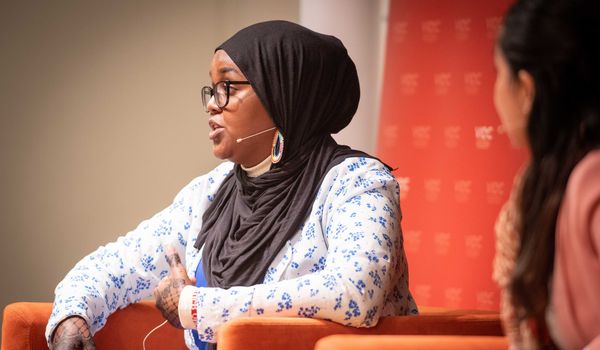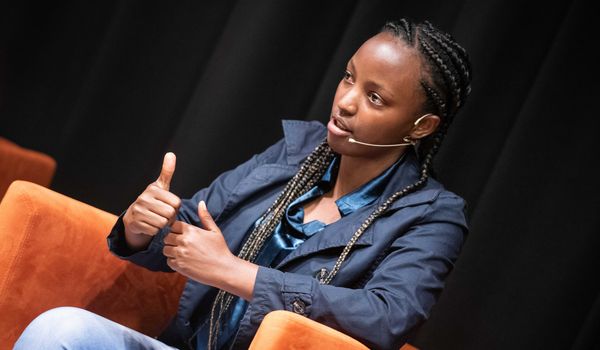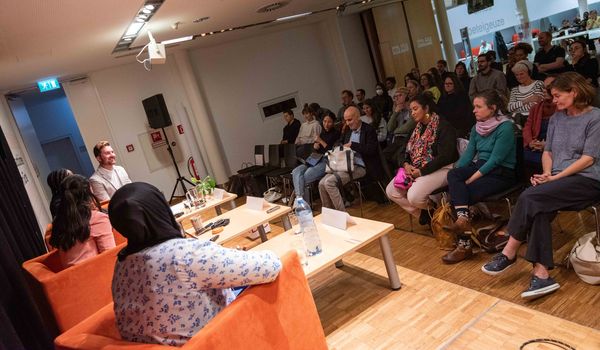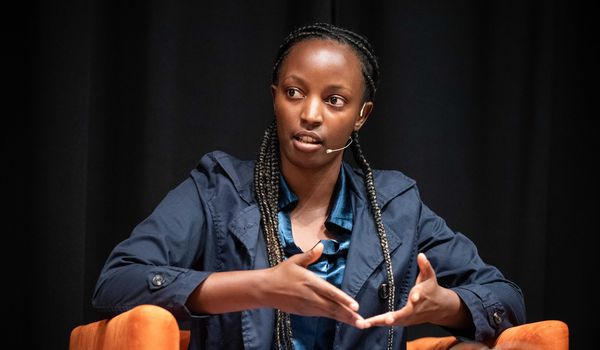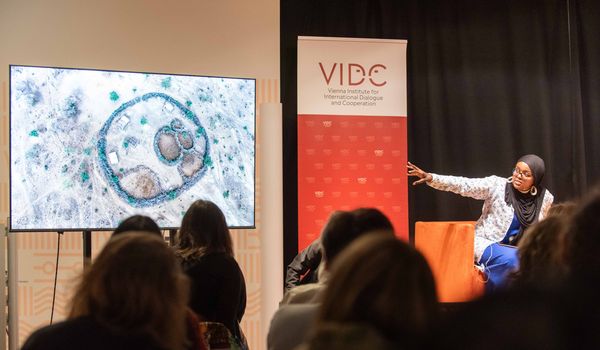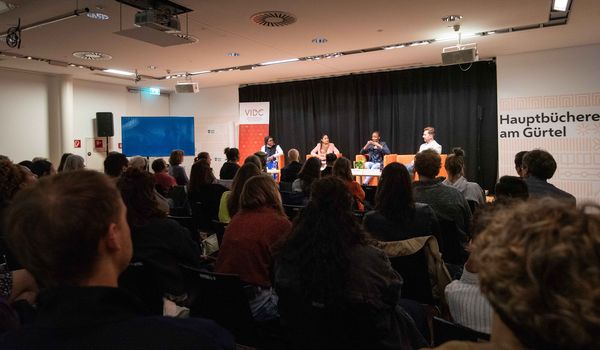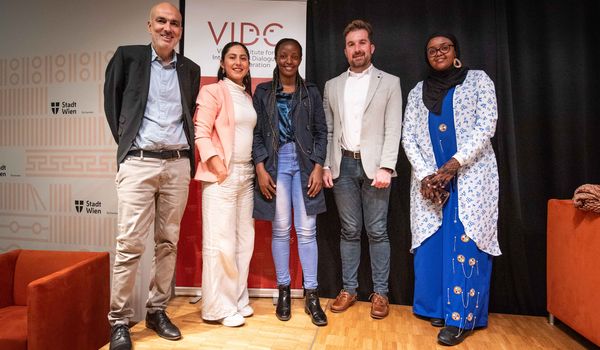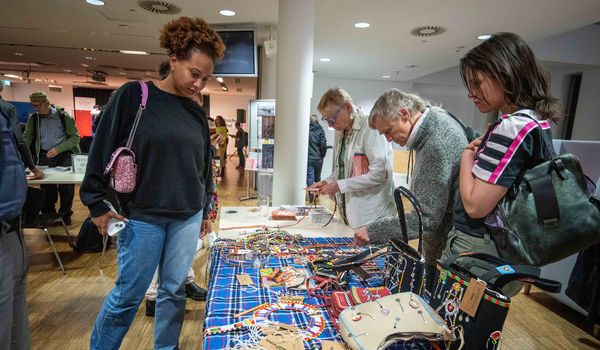This report delves into the intricacies of human mobility in the time of global warming, exploring the complexities, challenges, and potential solutions surrounding a critical issue that has not been sufficiently unpacked. VIDC therefore held a panel discussion, hosted by Daniela Paredes Grijalva, consisting of climate researcher Diogo Andreola Serraglio and researchers and activists Rose Kobusinge and Mana Omar from Fridays for Future Africa. They discussed how the global phenomenon of climate change is linked to (forced) migration and immobility, using examples from Ethiopia, Uganda and Kenya.
The climate crisis does not stop at our borders
Climate change is an ever-present and pressing issue affecting people all around the world and, while many discussions and articles have focused on the environmental consequences, it's vital to remember that climate change impacts humans as well. “Climate migration” is a phenomenon that is driven by the changing patterns of our climate, forcing millions to leave their homes in search of safety and sustenance. This event explored the complex and deeply human aspects of climate migration, especially in East Africa, the challenges it poses, and the need for an immediate global response since the crisis, unfortunately, does not follow the restrictions of our geopolitical borders.
As our planet's climate continues to shift, communities worldwide, especially in Africa`s Horn, face the difficulty of adapting to their ancestral land becoming uninhabitable. Their crops wither, their herds of cattle begin to dwindle, and the availability of clean, safe drinking water is progressively a rarer resource. These challenges compound the difficulties they face in sustaining their livelihoods and ensuring the well-being of their communities. Many are faced with the choice to migrate, voluntarily or forced, others still want to stay in their country of origin or have no other choice because they have no papers, are not mobile, are ill or have to look after their children. The possibilities go on; however, the only aspect each of these decisions have in common is the weight of profound consequences.
The younger generation has nothing to lose
The younger individuals, who have fewer ties to their current locations and more days to hopefully look forward to, are often the ones to embark on the arduous journey of climate migration. However, climate migration also tends to be accompanied by gender disparities, as economic factors and fewer family responsibilities in their communities often allow men to move. In these communities, men are mostly the household money-handlers, leaving the women with the responsibility of caring for the children and the elderly. Therefore, staying put becomes the social and more economical choice for women, despite the additional hardships to endure. For instance, having to walk several kilometres in the soaring sun of the desert to fetch water or sustenance for their families, or “for even selling just a single dollar’s worth of milk from their cattle,” said Mana Omar. However, the women in these communities still fight to feed many mouths, considering the many children most of them have, as they are often stripped of their bodily autonomy, vulnerable to marital rape, and various looming threats of sexual violence. “These men, you cannot reason with them,” said Rose Kobusinge, highlighting the severity of the situation. As the women do not have access to contraceptives and adequate medical care, they cannot resist the decisions imposed on them.
Additionally, it's imperative to consider the plight of the elderly and disabled, who face insurmountable obstacles in their efforts to relocate. Furthermore, the looming mental health issues among climate migrants are an essential aspect of the overall struggle. “When the floods are so near to home, mental health is now part of the discussion,” said Kobusinge. Not only do families start suffering in their homes but they are often also confronted with the fracturing of families as some parents leave children behind, adding to the many hardships faced.
Painful decisions
Despite the promises of relocation to closer villages or camps, individuals find themselves in uncharted territory, unsure of the available resources. The pivotal question arises: will they opt for permanent relocation, short-term stays, or simply visit with the hope of returning to their homes if rains rejuvenate their parched lands? This upheaval is accompanied by pervasive insecurity, affecting individuals both along migration routes and at their final destinations. Usually, climate migrants are left with little choice but to leave, a painful decision driven by necessity rather than preference. They are faced with complex choices where the available options include moving to another city, crossing international borders with national identification, or settling in another village. Tragically, these migrants often lack important documents that could give them an ounce of security, these documents are often not given the importance they deserve, and they are exposed to threats such as detention by border controls, rejection by the authorities in their destinations, or they become victims of human trafficking! “Most of these problems occur exclusively within Africa, as only 14% manage or decide to leave Africa,” says Kobusinge.
Far too often, the challenges don’t stop with the trip itself, since climate migrants encounter a lack of welcoming communities, who are often also struggling to survive in the face of dire circumstances, adding another possibility for gamble. They frequently find themselves on the fringes of society, struggling to secure even the most basic standards of living, or practice fundamental freedoms, such as of speech, religion, and expression. Employment opportunities are also scarce, and shelter is often rudimentary and precarious, devoid of safety and comfort. Furthermore, the increase in hunger is accompanied by health complications, especially in drained children with limited access to healthcare who eventually become too weak to travel or learn, thus forcing them to drop out of schools and await the promised human aid. All these factors serve to compound vulnerability and amplify their struggles.
The fundamental right to remain in one's homeland is often ignored
In the grand narrative of climate-induced human migration, these frontline stories of hardship and determination speak to the urgent need for action and support for those who, through no fault of their own, are compelled to leave their homes in the wake of a changing climate. The fundamental right to remain in one's homeland is often negated when homes and cherished cultural legacies are erased by the devastating impacts of climate change. As a poignant reminder, “none of us are immune to the looming threat of climate change” as said Kobusinge, as its onset is unpredictable.
Moreover, in many instances, data and information fail to reach the intended destinations, leaving those in need without the support they require. This is why educating the endangered communities and sustaining them with needed aid is essential, bearing in mind that a lot of the help they may get is in the form of loans that are nearly impossible to pay off considering the circumstances. To manage this and recognizing the urgency of the situation, it is crucial to shift our terminology to consider "human mobility" a more inclusive term for movements driven by climate-related factors. It is also essential to distinguish between migration by choice, relocations, and Immobility, as they each have distinct implications for the individuals and communities involved. As Kobusinge aptly said “When they see it as a problem and handle it as a problem it will indeed become a problem.”
Thus now, it's imperative to create a plan including education, information, and strong connections and eliminate double standards where the world does not care less about disasters happening outside of Europe. As Serraglio pointed out, “Now we recognise the problem but, how will we act, or find solutions.” Most importantly ensuring that climate migrants themselves have a seat at the decision-making table. According to Kobusinge`s experience, meaningful participation and inclusive decision-making are missing from the process, and even attending such discussions can often be hindered due to lack of visas!
In conclusion, climate migration is a complex and pressing issue that demands our immediate attention. Our planet's climate continues to change, and it is crucial to provide support and inclusive solutions for those affected. It's time to break down the borders that divide us and work together to create a more inclusive and sustainable future.



